There is a moment in She Dies Tomorrow where the primary character, Amy (Kate Lyn Sheil), is on her laptop looking at a leather jacket for sale. Our first guess is she’s impulse-buying the jacket she’s looking at, the one that was always just too expensive to justify when she wasn’t going to die tomorrow. It’s an impulse to therapy-buy many of us understand in the middle of a pandemic. The surprise and pleasure of She Dies Tomorrow comes when Amy explains to her concerned friend, Jane (Jane Adams): “I was thinking I could be made into a leather jacket.” It becomes clear by the end of the film that this isn’t an idle question. The wandering journey we follow her on through the film leads to a leather shop in the desert, where the proprietor walks her through the necessary steps for preserving and treating skin to allow him to work with it. It is dark and tangential, motivated not so much by character development or backstory as by a sense of comic-nihilism.
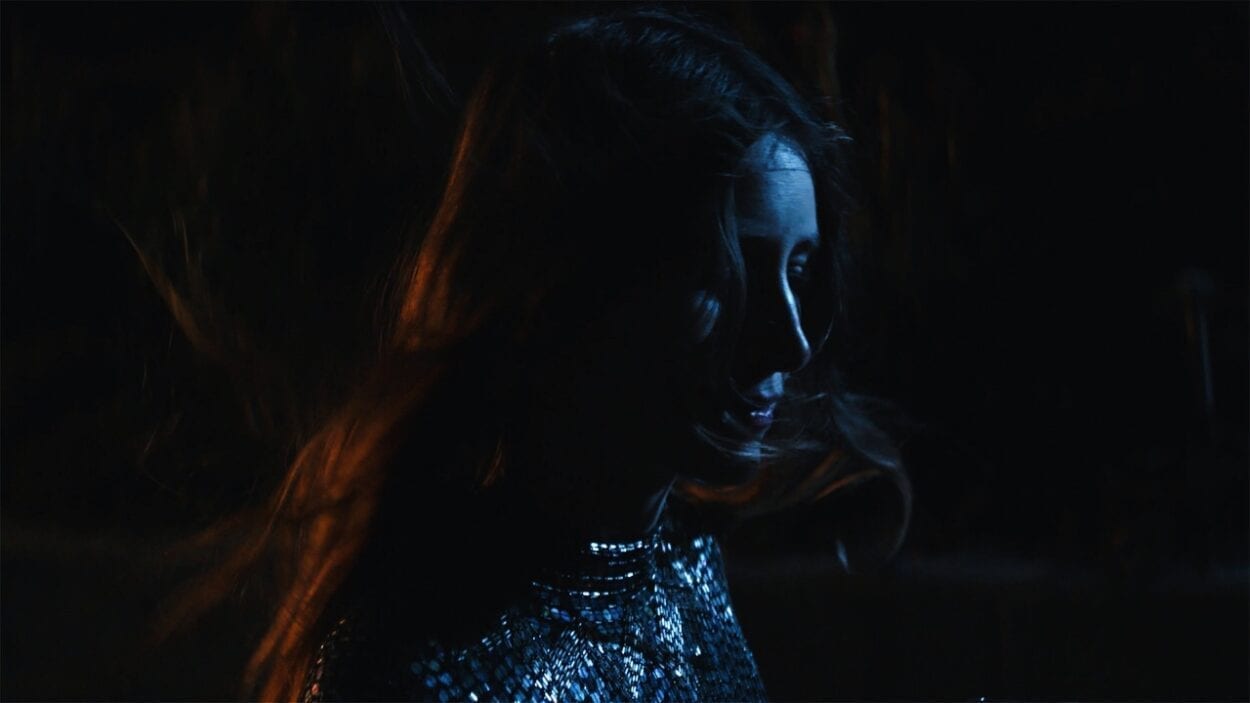
Coming from a mumblecore background (reflected in the acting presence of Adam Wingard, Director of the recent horror classic You’re Next), Amy Seimetz has crafted an indy film equal parts Gaspar Noe, Robert Altman, and Brett Easton Ellis. She Dies Tomorrow doesn’t move forward, it wanders outward in a web, like a pataphysical virus spreading through populations. We start with Amy alone in her house, fallen off the wagon, broken up with her partner, and caressing her living room floor, fascinated with the idea that the wood used to be alive. Just as she is expecting her own “used to be alive” very soon. She passes her fear to Jane, who then passes her fear to her brother, his wife, and the guests at her birthday party. We never learn what this “sickness” is, the script is intentionally short on exposition, but we learn a lot about its symptoms.
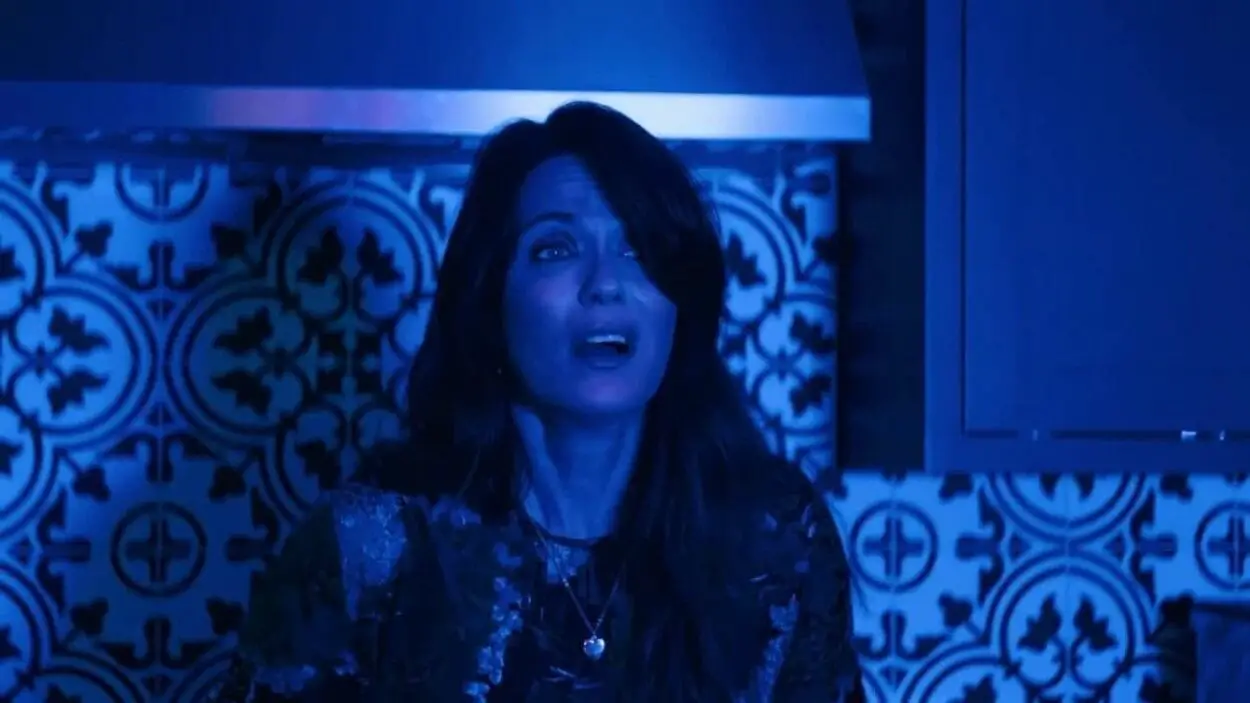
The journey of each character into their infection provides the most visually memorable moments in the film. As each of the afflicted realizes with dawning horror that they too are going to die tomorrow, they stare into the space in front of them as lights begin to flash turning the screen blue, red, purple, green—they’re different for each character, and it’s surely an interesting question whether the particular colors and combinations have any narrative significance in regards to a character’s personality or circumstances. I couldn’t identify one, but that certainly doesn’t mean it’s not there.
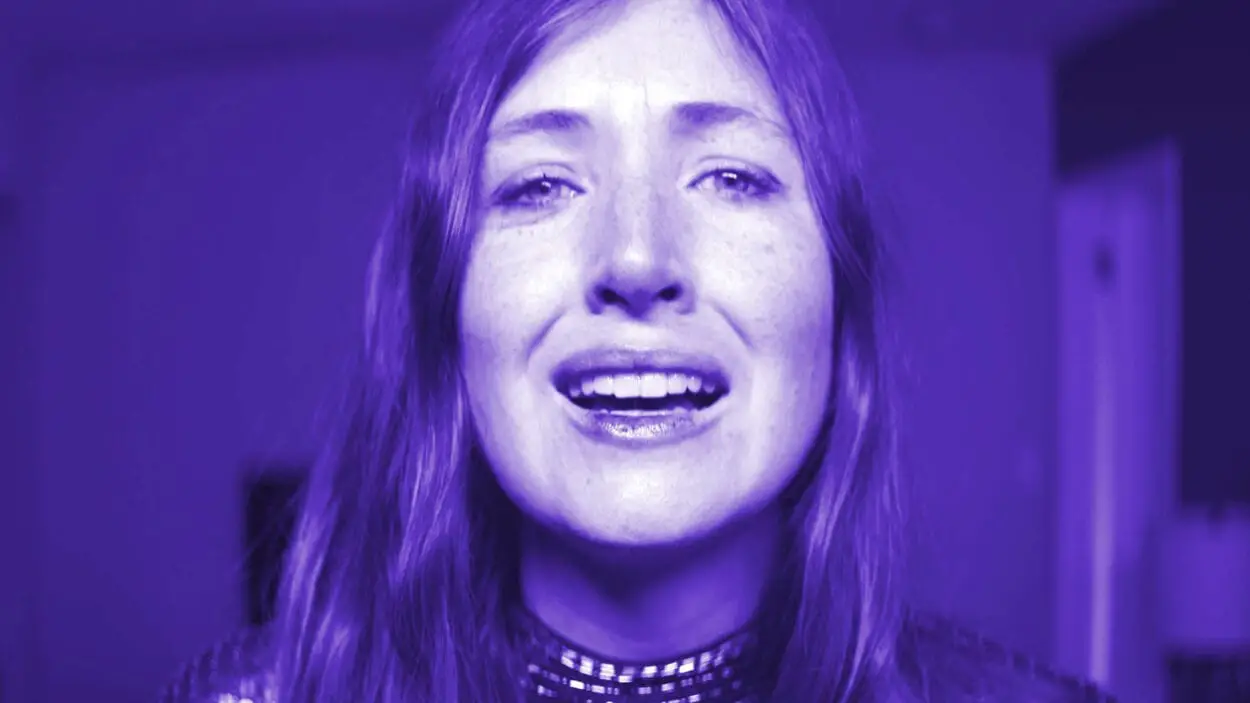
Seimetz is extremely clever in her ability to walk the line between film genres and tropes. This isn’t a romantic drama but we get all the elements of one in the scenes between party guests, Brian (Tunde Adebimpe) and Tilly (Jennifer Kim). After they are infected by Jane, they leave the party on a soul-searching night of discussing their feelings for each other, breaking up, pulling the plug on Brian’s dad without a doctor present—normal couple things. This isn’t a plague movie like the Stand or Outbreak, but Jane is an artist that takes pictures of microscopic organisms and germs, which are used as the backdrop for the opening credits, and who has several scenes crouched over a microscope muttering scientist-hero lines like “Gotcha” when she finds the shot she is looking for. This isn’t a zombie movie but each of the characters devolves into semi-catatonic states shuffling around the screen under-reacting to the bizarre scenes they wander across. We even get the classic “walk down the darkened stairs to stumble on a bloody and destroyed basement” as a character comes looking for Jane.
Long before Jane wades into a stranger’s pool and crawls onto a flamingo float, turning the water red with blood from a wound she suffered earlier off-screen, we know that She Dies is a funny movie. Humor is used at every turn as a counterpoint to the bleakness of the situation, from characters discussing dolphin sex, to the soundtrack. Mozart’s “Requiem in D” is used in the opening credits and several scenes throughout the film, including an extended one in Amy’s house after she puts a vinyl copy on her turntable (side quest: if anyone can identify the album cover leaning next to the player, I would be in your debt, I have reached out to all the audiophiles I know and have come up empty). At first glance it makes sense, it’s funerary, it’s dramatic, we all know it, but as we watch, it dawns that the song is a bit of an esoteric joke. So ponderously grand as a work of art that, in contrast to the events on the screen, it becomes comically inappropriate, the soundtrack for an explosion when the world is instead going out with a whimper.
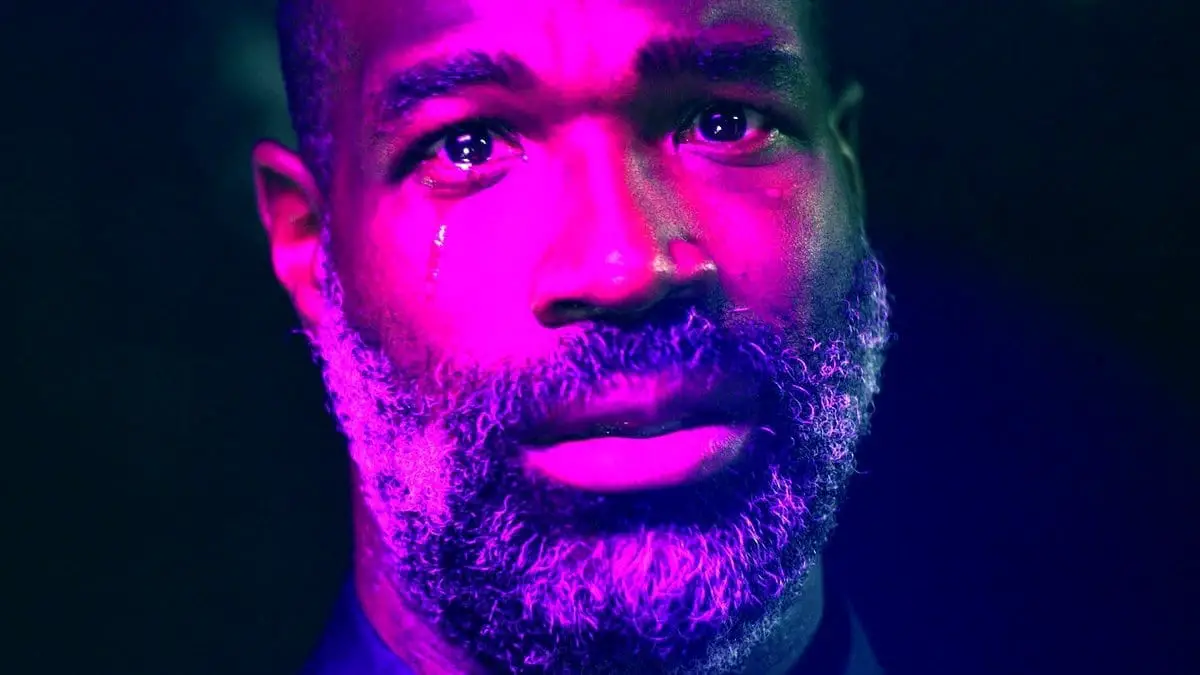
You never really know what’s happening. We’re dropped into the middle of the situation with Amy already infected. I keep calling it “infected” throughout this review but only for want of a more precise word. We have no idea if this is a sickness. No idea if Amy started the chain. A flashback shows her on vacation with her ex-boyfriend (Kentucky Audley) who answers the doorbell for the pizza man. After a long pause at the open door, he returns with the pizza as well as the depressed aspect of all the others who believe they’re going to die.
Nothing much beyond this is explained. It’s certainly suggested that this was the starting point for the affliction, at least for Amy, but the timeline is muddled. It’s not certain how long before the movie begins that her relationship ended. In one flashback we see the boyfriend being shown around the house that she is currently living in, even though in the present it appears she just moved in and the relationship seems firmly in the past. There’s a possibility this confusion is intentional.
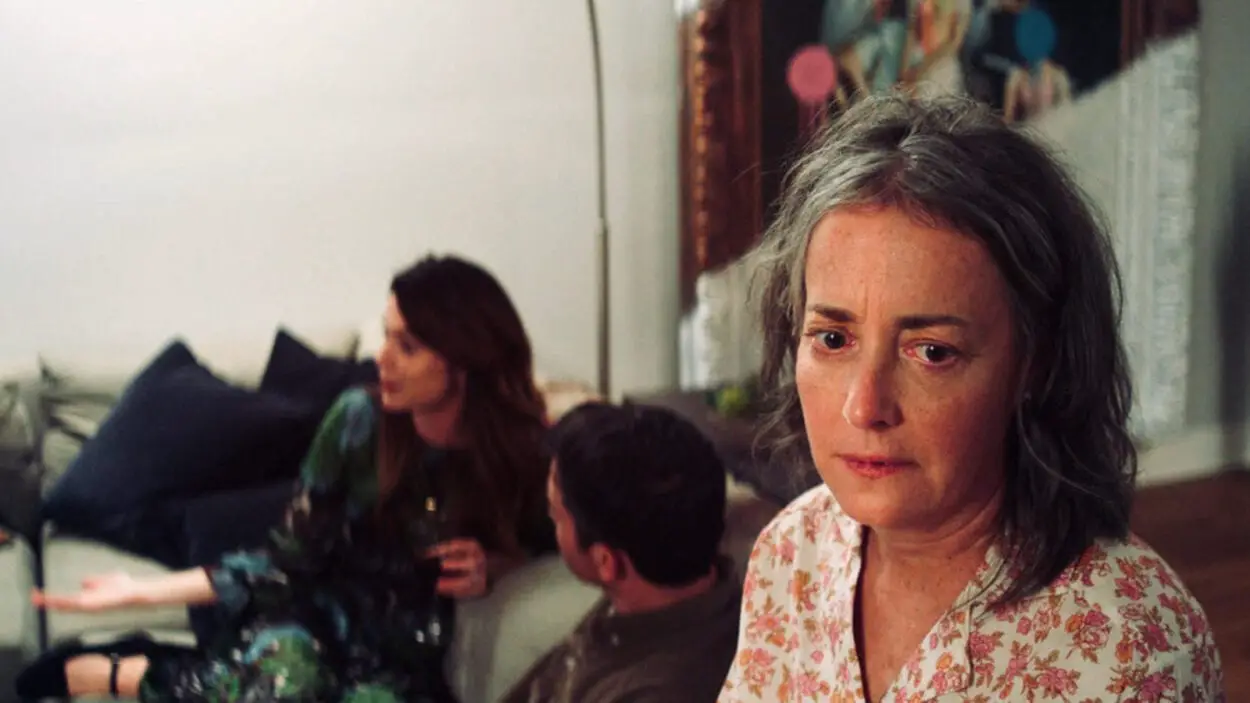
Is it a suggestion that the “virus” is simply a post-breakup depression? Was her boyfriend possibly manic-depressive, whose unstable mood swings combined with Amy’s alcoholism lead to the fracture? If that were the case, then why does it spread to others? Again, Seimetz is great at walking the high-wire between allegory and literalism. There are problems between Jane and her sister-in-law. Problems between her brother and his wife. Problems between Brian and Tilly. Is the film a dramatized surrender to the fear of intimacy? Who can say?
Towards the end of the movie, one starts to suspect that the whole thing is one big hipster parable about ennui in modern life, at least until we see Michelle Rodriguez stretched out on her floor lamenting her imminent death. She and her friend, Erin (Olivia Taylor Dudley), come out of nowhere. We haven’t met them prior to Jane wandering into their trendy home in the bloody pajamas she has worn the entire film. The two women have no reaction to this stranger in their home, nor to being bled on by her, and are more than happy to let her use their pool. They’re obviously infected and presumably haven’t met any of the characters we’ve seen previously in the movie. The scene expands the scope of the story beyond what we’ve seen. Whatever this sickness is, it’s not just affecting Amy, Jane, and their circle—this is everywhere.
The irony of She Dies Tomorrow is that the nature of its illness, its virus, its…whatever it is, leaves us wanting to know more, the mysteriousness of the whole thing is both its great strength and the main criticism. The strangeness of the movie and the uniqueness of the events we witness make us want to know more, a lot more about where it all started and how. Is it supernatural or alien? Physical or spiritual?
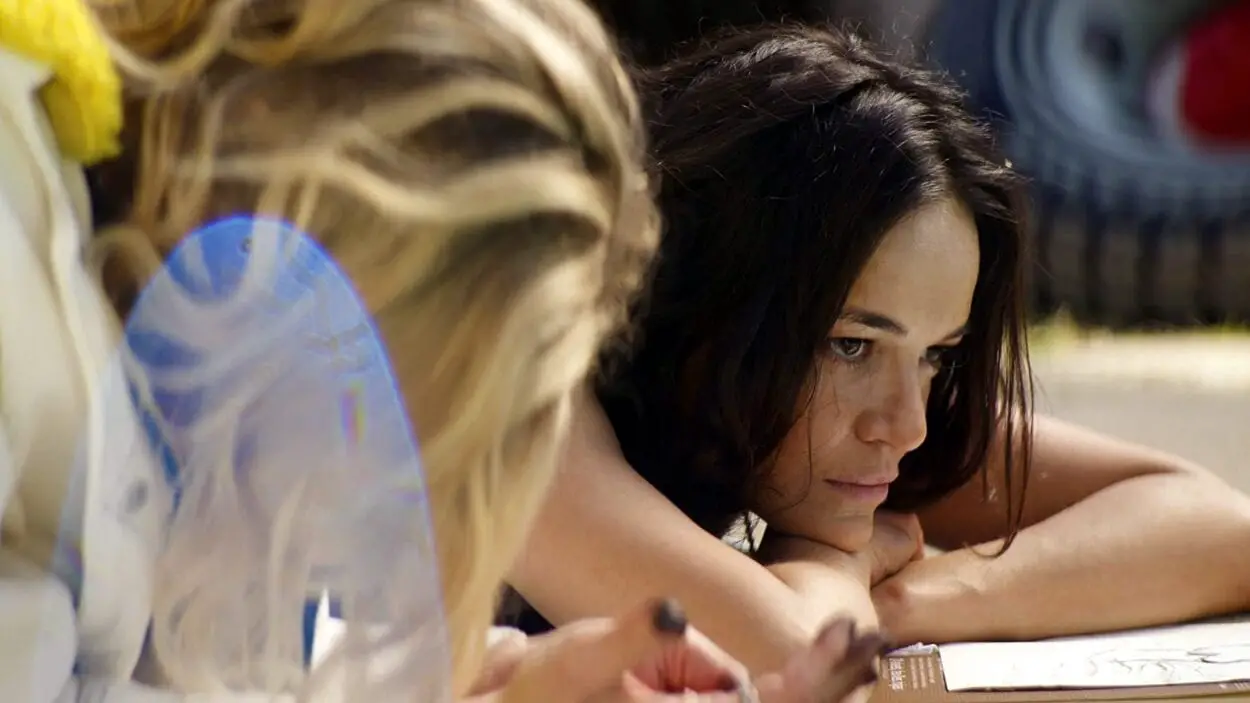
It’s hard to end not having those answers, it’s not even clear whether she dies tomorrow. Because of those idiosyncrasies, we’re left wanting a little bit more, just some clue about what exactly we just watched. But we’ll have to be ok with it because this is Amy Seimetz’s passion project through and through, funded by money she made from her role in the Pet Sematary remake. Because it is uniquely hers, it’s uniquely unexpected in its contours, funny in the right spots, scary in others, and it forces the viewer to ask a whole lot of questions that never get any answers. But Seimetz is a gifted director and even through the uncertainty, She Dies Tomorrow is well worth the watch.



